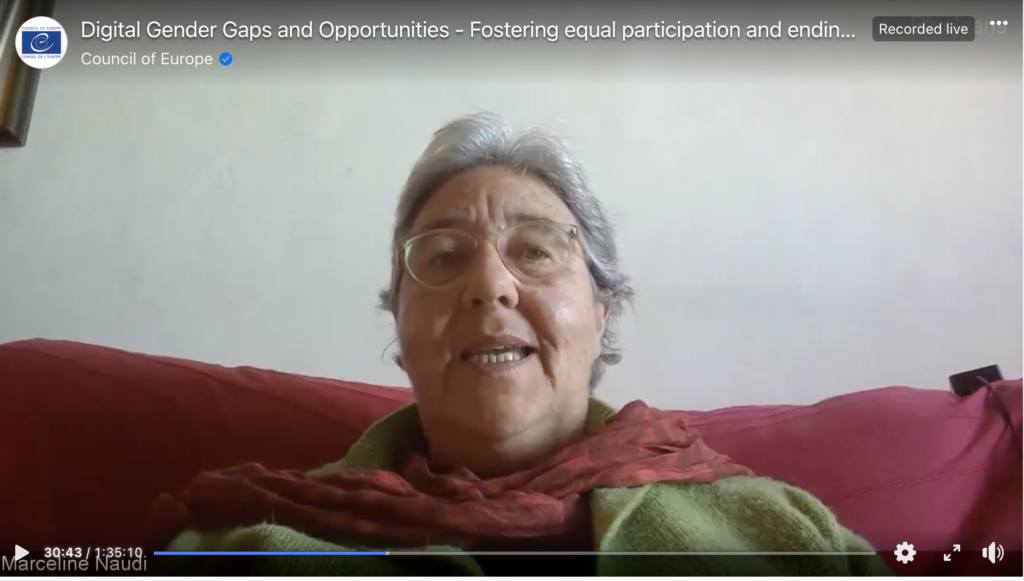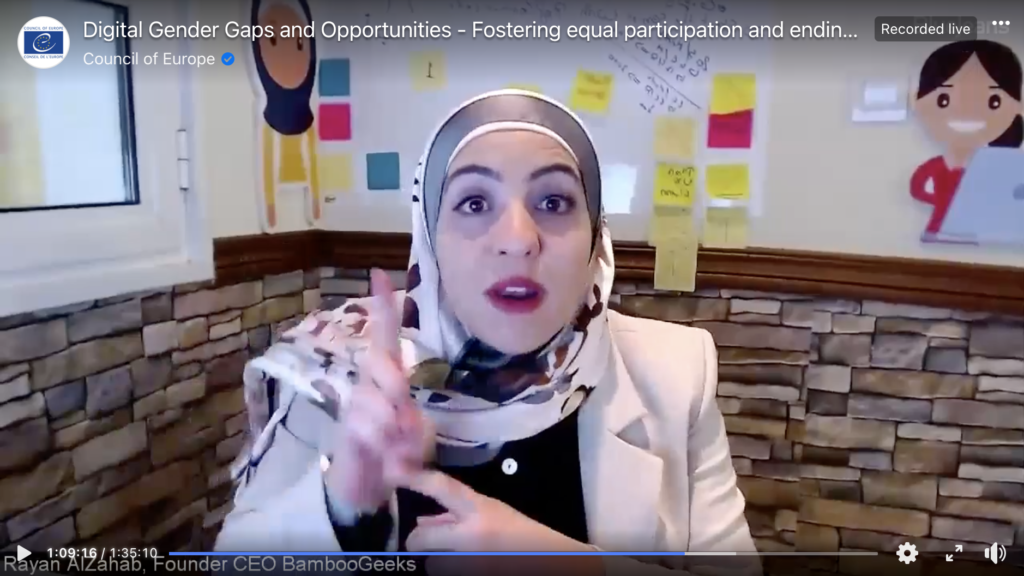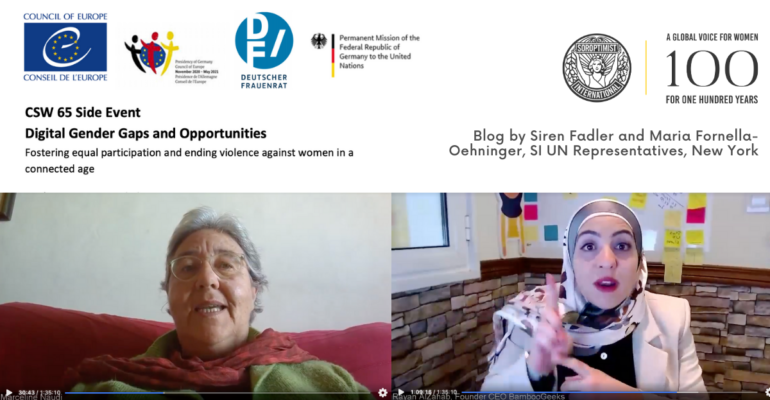Blog by Siren Fadler and Maria Fornella-Oehninger, SI UN Representatives, New York.
Siren and Maria report on the CSW65 Side Event, “Digital Gender Gaps and Opportunities – Fostering equal participation and ending violence against women in a connected age”, organised by Germany and the Council of Europe.
Accelerated by COVID-19 pandemic, the digital transformation generates new opportunities for women’s empowerment through access to knowledge and resources. At the same time, it exacerbates the digital gender divide as it opens new forms of perpetrating discrimination and harassment of women, for example, through online and technology-facilitated violence.
The dramatic increase of online abuse shows that new rules are needed to protect our Human Rights. On social media, women and girls risk gender and ethnicity violence. Sadly, Black and minoritised women are disproportionately impacted by online abuse. Digitalisation will transform the world, but how can we make the digital space safer? The digital gender gap is a political question and not a technical one.
The Council of Europe Istanbul Convention Preventing and Combating Violence against Women and Domestic Violence is a human rights treaty that provides these much needed rules. It opened for signature on May 11, 2011 in Istanbul, Turkey, and has been signed by 45 states and ratified by 34 up to present. Its four cornerstone principles are Prevention of Violence, Protection of Victims, Prosecution of Perpetrators, and Integrated Policies.

Screenshot of speaker: Marceline Naudi, Senior Lecturer and Vice President of GREVIO.
As Marceline Naudi pointed out, the convention covers all kinds of violence against women, whether online or off. States must take preventative measures, protect victims, and prosecute perpetrators no matter the medium used. The Convention demands a holistic approach to the problem: a comprehensive set of policies that address all forms of violence, in the understanding that violence moves along a continuum, and must be accompanied by budgetary measures and resources. Obligations under the Convention apply to all women, regardless of sexual orientation, religion, ethnicity, etc. The role of the private sector is to collaborate by offering solutions. Implementation is monitored by GREVIO, a group of independent experts, of which Professor Naudi is a member.
Social media platforms offer a unique means of self-expression, and allow women to build relationships, find jobs, organise social and political activities. But they reproduce gender stereotypes since they are commercially motivated; algorithms reflect coders biases; and the production culture is male dominated, which is reflected in content. Digital violence is used to silence voices. It was pointed out that one main reason why women do not run for government positions is due to fear of retribution and persecution, just for being a woman.
We were both impressed by Rayan Al Zahab, a IT engineer, Google developer and hijabed woman, who found it quite difficult to get through the door in the industry due to the fact that, first, she is a woman (her name is a common male name, so she got the interviews due to her outstanding CV) and second, she wears a hijab. Interviewers asked about her plans for marriage and motherhood, which in most countries are illegal questions to ask by prospective employers.

Screenshot of speaker: Rayan AlZahab, Founder & CEO of BambooGeeks, and Google Developer.
At a conference in Saudi Arabia, she gave a speech on the first day and almost left the conference after she saw the negative comments online. She felt depressed but decided not to read the comments from that moment on and ploughed ahead. Her opinion is that it is our duty to face the problems of male harassment, defy them and find solutions. Her conclusion: Once women get into the industry, they must find strategies on how to change the culture within tech companies. In addition, we need to educate ourselves, women and girls, but also men and boys on what constitutes online harassment.
Online activity is a main part of our lives now, so it should come as no surprise that the patriarchal structures that dominate the real world carry on to the online environment. One important consideration is to educate boys and men and find allies that will help us dismantle those patriarchal forms and stereotypical attitudes. If women choose to be silent on social media, online harassment in the digital world will continue and gender equality will be set back. If women do not go into politics for fear of harassment, this undermines democracy and Human Rights, setting us back in our achievements even further. We need to strengthen legislation so that all women’s rights are protected and safeguarded. This means we must make online safety a reality – including calling for stronger reporting mechanisms for violence that meet women needs and hold perpetrators accountable.
To watch the full recording of the Virtual Side Event, click HERE.

